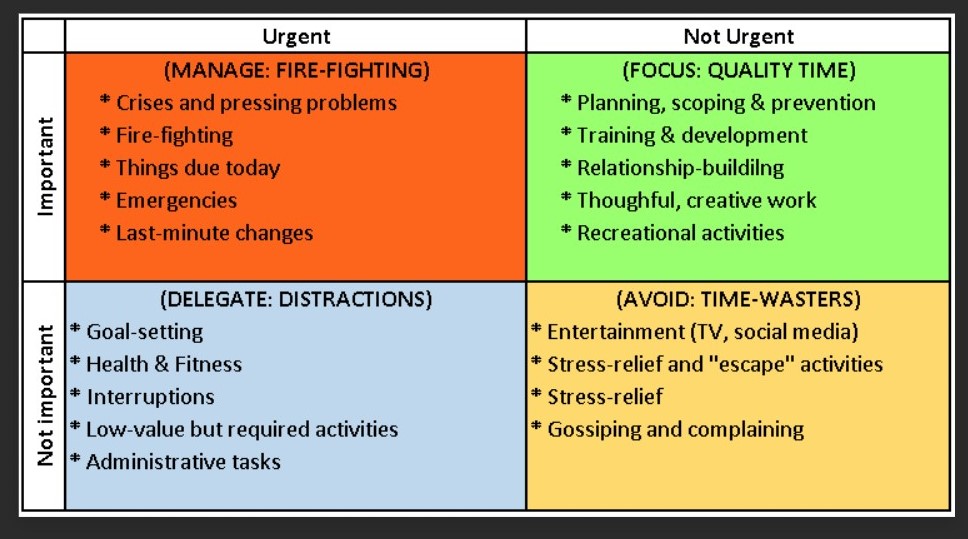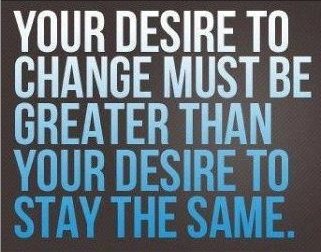How to Decide What’s Urgent, Important or Not

Since the start of the new year, I’ve been working to find clarity in my prioritizing. I wrote about the value of time and how to decide where to spend it. I wrote about the importance of putting the big rocks in first and determining what makes one rock more important than another.
This is the hard part.
Rocks are hard…get it? 😊
Steven Covey’s time management quadrant in the previous post makes the idea of sorting things into the 4 areas clear. Different things need a different level of attention given to them.
- Quadrant 1 is fire-fighting (urgent & important). This is easily recognized and where most of us spend way too much time. This is the get down to the core action of, if the house is on fire and the phones ringing…do we answer the phone or get the kids out of the house? The problem is we should have spent more on important rather than urgent and maybe we could have prevented the fire.
- Quadrant 2 is quality time (important & not urgent). This is the area where we should focus. It’s where we get the most return on our investment of time and energy. It’s also the hardest because there’s no immediate rush like there is when fighting fires.
- Quadrant 3 is distractions (urgent & not important). We can fill this quadrant with an endless list of small and trivial tasks convincing ourselves that they are important, because they probably are. The things in this quadrant require less time and energy than the ‘really’ important tasks. The question is, are you doing them because they’re important…or because it feels good to check thing off the list?
- Quadrant 4 is time-wasters (not important & not urgent). The things in this quadrant are the things of least importance. These things serve no direct purpose in accomplishing the important things in your life. You want to avoid wasting time on these things.
We have a limited amount of time…spend it wisely.
As I read through the different quadrants in this example, I was perplexed with some of the things listed.

It seemed to me that some of the things in quadrant 4 were important things and not necessarily time wasters, i.e. entertainment (TV) and stress relief. In quadrant 2 was recreational activities. For me watching TV is recreational. And isn’t “relieving of stress” pretty important? The more I studied it the clearer it became…
It’s up to us what goes in our quadrants!

It comes down to being crystal clear on who we are and what our specific purpose is. This is the problem. Most of us haven’t or don’t want to spend the time and energy to figure it out. We just float through life without a clear direction of where we’re going or how we’re going to get there.
In the Ayn Rand book Fountainhead architect Howard Roark is super clear on who he is and what he’s willing to do or not. Because of his lack of conformity to the status quo, he struggles to make a living. He is almost broke but is given an opportunity to design and build a bank building that would be very profitable for him.
As he meets with the bank board, they ask him to make a few changes that would require that he conform. He turns the job down and goes to work doing manual labor in a quarry.
I want Howard Roark’s clarity.

I do think there is a place for conformity. It’s not always wise to cut one’s nose off to spite one’s face. However if we have Mr. Roark’s clarity, we can then determine what makes things urgent, important or not in our lives.
You get to decide, but if you want clarity…you have to decide.




































